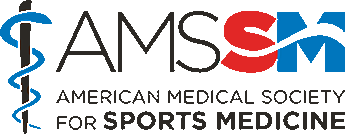 What is it? “Doping” refers to the use of banned substances in competitive sports. Performance enhancing drugs (PEDs) is another term used to for drugs used by athletes to improve their athletic performance. Why is doping such a big deal? Safety first! The most important reason doping is a big deal is the fact that many of these substances can have harmful and long-lasting side effects which may include the following: Cardiovascular: irregular heart rhythm, elevated blood pressure, heart attack, sudden death Central Nervous System: insomnia, anxiousness, depression, aggressive behavior, suicide, headache, addiction with withdrawal, psychosis, tremor, dizziness, stroke Respiratory: nose bleeds, sinusitis Hormonal: infertility, gynecomastia (enlarged breasts), decreased testicular size, low sex drive, acromegaly (coarse bones in face, hands, and feet), cancer The second issue is more of a moral dilemma. These banned substances are used to gain an unfair advantage which significantly devalues the spirit of competition. As stated by the World Anti-Doping Agency (WADA), the purpose of an anti-doping program is “to protect the athletes’ fundamental right to participate in doping-free sport and thus promote health, fairness and equality for athletes worldwide…” What substances are banned from use? Some drugs are banned both in and out of competition due to their performance enhancing properties, while others are only banned during competition. Another reason for banning a drug is due to their ability to mask the presence of a different banned drug during testing. Each organization has a different list of banned substances. More information can be found at their respective websites listed at the end of this article. In general, the following classes of drugs are banned: For athletes who need a banned drug for legitimate medical reasons, the anti-doping programs offer a way to request a therapeutic use of exemption (TUE) so the athlete can use the drug. The athlete must have a physician complete a TUE form that states the athlete needs the drug to treat their medical condition and that an alternative non-banned drug is not available or insufficiently treats their condition. The TUE is reviewed by a medical committee, which either allows the athlete to take the drug or denies the athlete’s request. It is important to note that even some over-the-counter (OTC) medications and supplements are either banned or contain banned additives or contaminants. For example, the National Collegiate Athletic Association (NCAA) bans excessive caffeine use, defined as a urine caffeine level above 15μg/ mL. WADA has banned pseudoephedrine (i.e. Sudafed) if the urine concentration is above 150 mcg/ml, although this drug is allowed by the NCAA. There are many other examples of commonly used drugs that may be permitted by one group and disallowed by another. In any case, the athlete should work closely with the supervising medical team to determine which drugs are safe and permitted for use. Who determines whether a doping violation has occurred? As stated previously, the organizations that monitor for doping violations vary between sports. The largest anti-doping organization is WADA. WADA has developed a coordinated, worldwide anti-doping program that applies to sports that have signed a pledge to uphold the WADA Code. The WADA Code outlines their “anti-doping policies, rules, and regulations with sport organizations and among public authorities around the world”. More than 660 sports organizations have signed the WADA Code including the International Olympic and Paralympic Committees, all Olympic Sport International Federations, and National Olympic and Paralympic Committees. The practical application of the WADA regulations is performed by national anti-doping agencies such as the United States Anti-Doping Agency (USADA). Athletes who participate in sports that have signed the WADA code are subject to random in and out of competition testing. Testing may be performed on urine and/or blood samples depending on the substances being tested. The frequency and type of testing varies between sport based upon a variety of factors including history of doping in the sport, type of sports (e.g., endurance, strength/power), substances being taken, and duration of the season. Below is a list of relevant anti-doping websites for additional information: AMSSM Member Authors References Category: Doping and Performance Enhancing Drugs (PEDs), [Back] |

